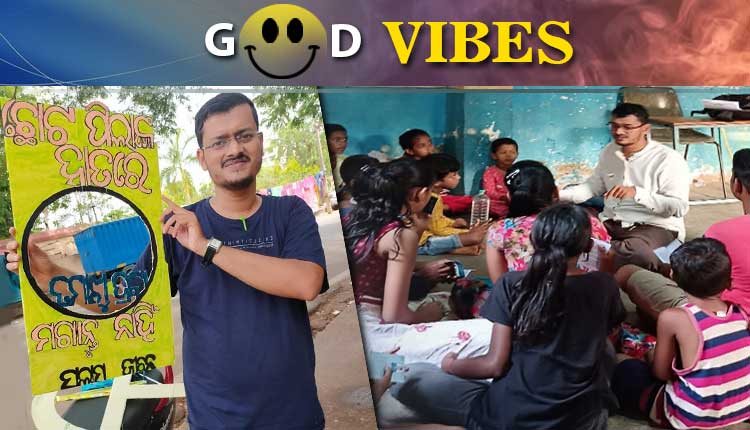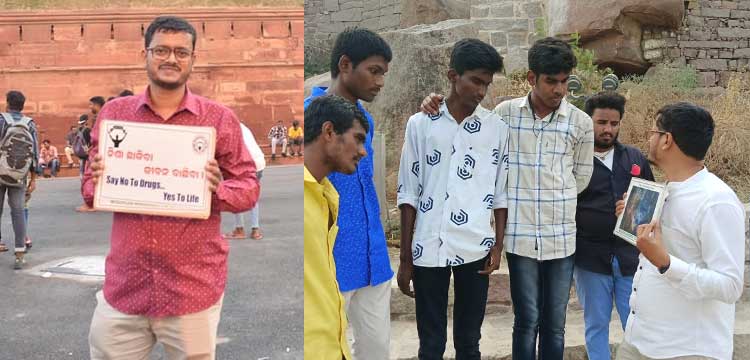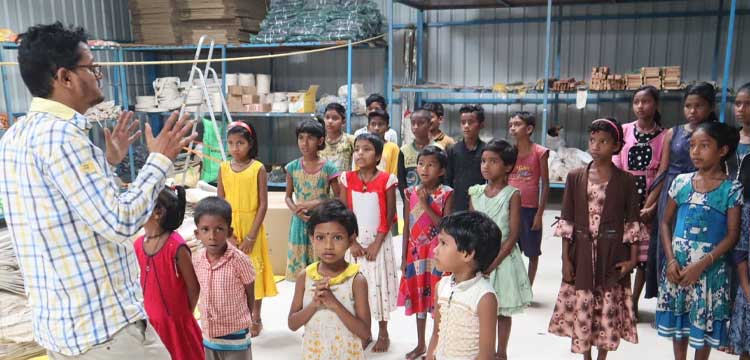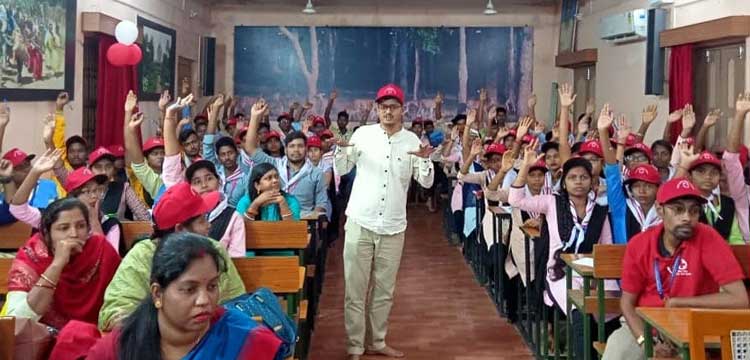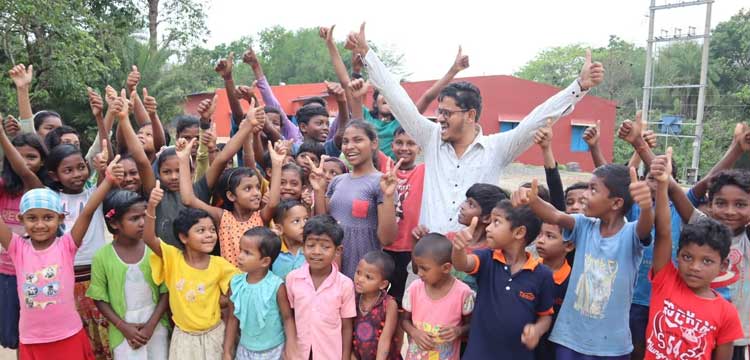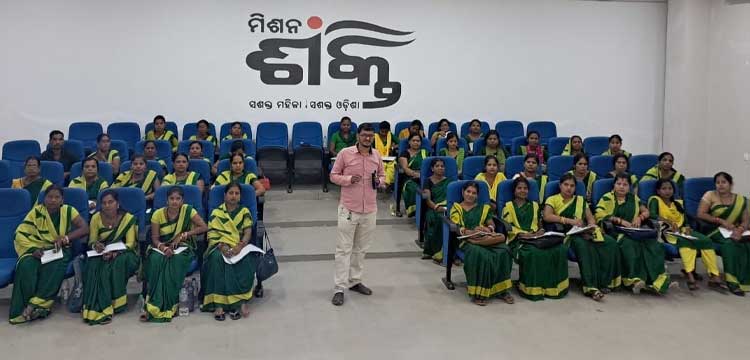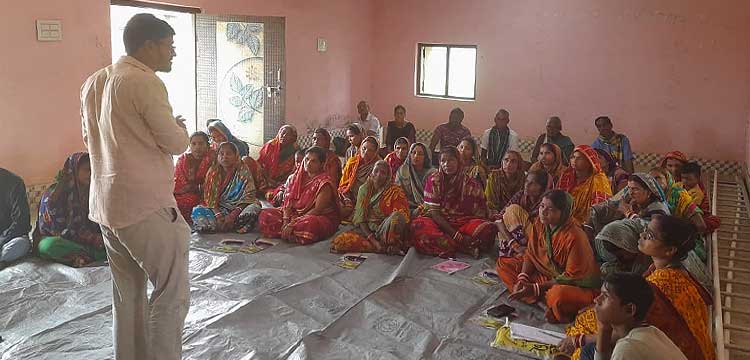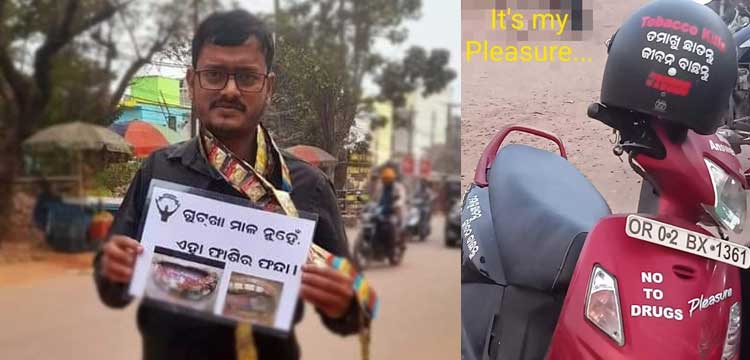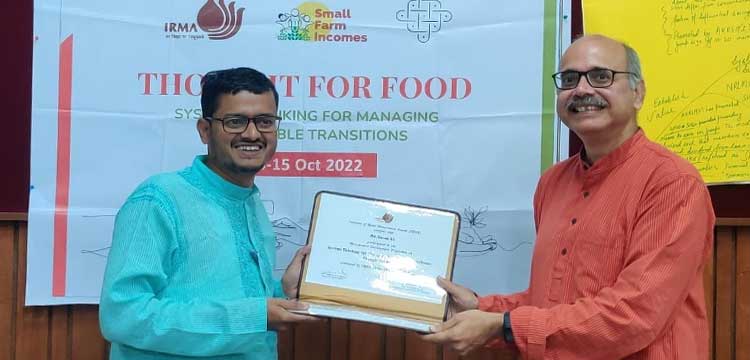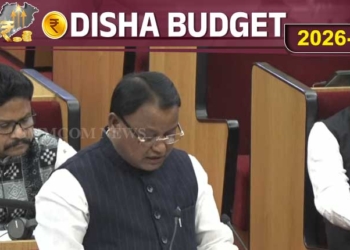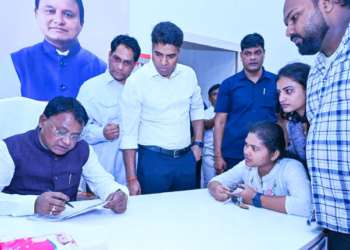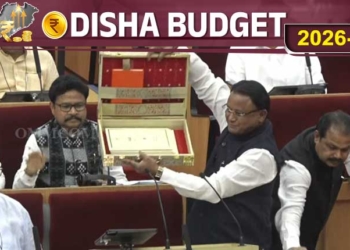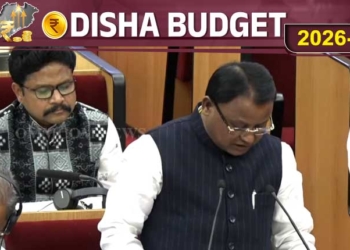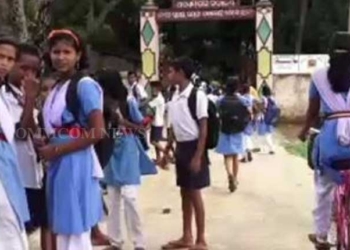By Rashmi Rekha Das
In a world where self-interest often takes centre stage, there are remarkable individuals who defy the norm. Dr Muhammad Imran Ali, fondly known as Imran Ali, is a shining example of such a trailblazer. With unwavering passion and dedication, he has committed himself to transforming his community for the better.
For over 15 years, Imran has been driven by a singular mission: to safeguard the health and well-being of future generations by creating a tobacco-free childhood. Since 2006, his tireless efforts have taken him to an impressive 2,500 locations, spanning schools, slums, offices, and universities. Through his relentless advocacy, Imran has empowered young minds about the devastating effects of tobacco and drug consumption, inspiring the new generation to make informed choices about their health.
In an exclusive and heartfelt conversation with Ommcom News, Imran opens up about the personal experience that sparked his passion to dedicate himself selflessly to this noble cause.
“What’s most alarming for me is the disturbing reality I encountered during his visits to educational institutions and slums. Despite their tender age, children are not only aware of various tobacco products, but many are also actively consuming them. This shocking revelation underscores the urgent need for awareness and intervention to protect young minds from the dangers of tobacco and drug”, said Imran when asked about what led you to launch this anti-tobacco drive instead of opting for a luxurious life.
To engage and inspire young minds, Imran employs a unique approach – using creative slogans and poems to convey the importance of avoiding addiction. He brings his messages to life through catchy renditions, singing poems entertainingly and humorously that captivate his young audience. By making his sessions interactive and fun, Imran ensures that his message resonates with the youth, leaving a lasting impact on their minds.
Imran’s approach to discouraging tobacco use is truly unique. By making young people take an oath not to touch intoxicants, he’s empowering them to make a conscious decision about their health. This oath serves as a powerful promise to themselves and others, motivating them to stay committed to a lifestyle free from tobacco.
By incorporating this oath-taking ceremony into his awareness programme, Imran is not only educating young people about the dangers of tobacco and drugs but also inspiring them to take ownership of their choices.
Imran’s anti-tobacco crusade extends beyond traditional platforms, as he actively leverages digital mediums to spread awareness. His impactful de-addiction campaign on Facebook earned him recognition from Facebook and 92.7 Big FM, who jointly honoured him for his efforts.
Apart from writing poems, stories, and rhymes focussing on de-addiction, his personal belongings, such as his bike and helmet display powerful anti-drug messages that grab attention and spark conversations.
Born into a family that prioritized social welfare over material comforts, he was instilled with values that emphasized the importance of giving back to society.
Imran’s life took a profound turn when he lost his mother at the tender age of five. His father, aunt, and grandmother collectively raised him, with his grandmother playing a particularly influential role. Her stories and teachings kindled a fire within Imran, inspiring him to work towards the betterment of society.
A poignant memory that continues to inspire Imran is the wisdom imparted by his grandmother. She would often say, ‘Bhalai Kar Bhala Hoga, Burai Kar Bura Hoga, Koi Dekhe Na Dekhe, Khuda To Dekhta Hoga’ (“Do good and good will come to you, do bad and bad will befall you, whether anyone sees it or not, God is always watching’).
As he grew older, Imran’s passion for social service only intensified. During his graduation, he actively participated in cleanliness campaigns and awareness drives against malaria and HIV. His dedication earned him the prestigious Best NSS Intellectual Volunteer Award at a state-level camp, where he was among 300 volunteers from nine states.
This recognition served as a catalyst, propelling Imran to continue his selfless work. He even wrote late President of India Dr Abdul Kalam to pursue a post-graduation degree in Master of Social Work (MSW) when the bank declined to give him a loan for higher studies following his graduation. Thanks to Kalam’s intervention, he availed the loan and continued his study.
As Imran reminisces about his post-graduation days, a pivotal moment comes to mind. During his master’s programme, he frequently visited slums as part of his fieldwork. It was there that he witnessed a disturbing reality: countless slum children were succumbing to tobacco and drug addiction.
“The sheer scale of the problem shook me. I realized that these young lives were being ravaged by addiction, destroying their childhood and jeopardizing their future. The gravity of the situation weighed heavily on his mind, prompting him to wonder: ‘What does the future hold for our country if its youngest citizens are already trapped in the grip of addiction?’
However, as Imran delved deeper, he discovered that tobacco and drug addiction was not confined to slum children alone. Schoolchildren and even youngsters from affluent families were also falling prey to this destructive habit. This revelation galvanized Imran into action, and he vowed to wage a war against tobacco and drugs in the state.
With a newfound sense of purpose, Imran dedicated himself to helping users overcome their addiction and advocating for a ban on tobacco products in the state. This marked the beginning of his tireless crusade, one that would go on to inspire countless lives and spark a movement towards a tobacco-free society.
Driven by his concern for the devastating impact of tobacco, Imran authored a book titled Bloody Gutka exposing the harm caused by tobacco products. He then founded “Nasa Mukti Yuva Sankalp,” a volunteer group that uses skits, leaflets, and educational institution visits to raise awareness about the dangers of tobacco.
His achievements do not end here. Imran’s anti-tobacco crusade gained momentum when he discovered that milk parlours were selling tobacco products, despite not being authorized to do so. Through RTI, he uncovered this truth and sought a ban. After initial efforts failed, Imran and his friend Jitendra Sahu filed a public interest litigation in the Orissa High Court in 2011. With advocate Biren Shanker Tripathy’s support, they won the case.
Emboldened by this victory, Imran pursued a complete ban on gutkha and pan masala products in Odisha. In December 2012, he filed another PIL seeking a blanket ban on the sale of gutkha products. He filed the PIL with the help of the Committee for Legal Aid to Poor (CLAP) and subsequently the Odisha government announced a complete ban on January 3, 2013.
Imran expressed disappointment, noting that despite the state government’s ban, the sale of gutkha continues unabated in Odisha. Moreover, he lamented that tobacco and drug consumption has increased in the state.
Undeterred by the challenges, Imran intensified his efforts by establishing the Salam Jeevan Trust in 2015, where he serves as the Managing Director. Alongside a dedicated team of 7-8 members, Imran spearheads the trust’s mission to liberate young India from the grip of addiction.
“To combat tobacco and drug addiction among young people, it’s crucial to tackle both demand and supply. This can be achieved through demand control, where family members and other stakeholders play a vital role in discouraging tobacco and drug use. Additionally, supply control measures must be implemented by the state government to regulate the availability of these products. By addressing both these aspects, we can work towards freeing young India from the grip of tobacco addiction”, said Imran.
Imran advocates for establishing robust monitoring mechanisms and Standard Operating Procedures (SOPs) for rehabilitation centres to free youths from the shackles of addiction. By implementing these measures, Imran believes that India can effectively combat addiction and create a brighter future for its youth.
His dedication and passion have earned him a slew of prestigious awards, including the State Youth Award, Nagar Bandhu Award, and Sambhavi Puraskar.
But that’s not all – Imran’s name has also been featured in the esteemed Limca Book of Records, a testament to his remarkable work.
Imran’s vision is clear: to create an addiction-free society where young India can thrive and contribute to nation-building, rather than being a burden.
“My message is one of hope and empowerment, urging young Indians to take control of their lives and contribute to building a stronger, healthier nation”, he signs off.




